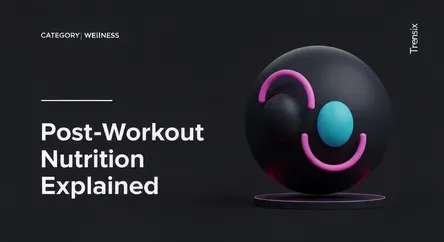Wellness
Post-Workout Nutrition Explained

Learn what to eat after your workout to boost muscle recovery, replenish energy, and maximize your fitness results.
What is it?
Post-workout nutrition is the practice of consuming a meal or snack shortly after exercising to help your body recover. During a workout, your muscles use stored energy called glycogen and can sustain microscopic damage. The primary goal of a post-workout meal is to replenish these glycogen stores and provide the necessary building blocks to repair and build muscle tissue. This typically involves a combination of carbohydrates to refuel energy and high-quality protein to aid in muscle protein synthesis, the process of repairing and creating new muscle.
Why is it trending?
The focus on maximizing fitness results and optimizing health has made post-workout nutrition a key trend. People are increasingly aware that exercise is only one part of the equation; proper recovery is crucial for achieving goals. The concept of the "anabolic window"—a period after exercise, often cited as 30-60 minutes, where the body is primed to absorb nutrients—is a popular topic. While research suggests this window might be wider than once thought, the principle of timely refueling to enhance muscle growth and recovery remains a significant focus in fitness culture, personal training, and sports science.
How does it affect people?
Proper post-workout nutrition directly impacts physical recovery and performance. Consuming a balanced meal of carbs and protein helps reduce muscle soreness, repairs muscle damage, and promotes muscle growth. It effectively refills energy stores, preventing fatigue and preparing the body for the next workout. For individuals aiming to build strength, improve endurance, or enhance body composition, strategic post-workout eating is essential. Failing to refuel can lead to poor recovery, decreased performance in future sessions, and increased feelings of fatigue.